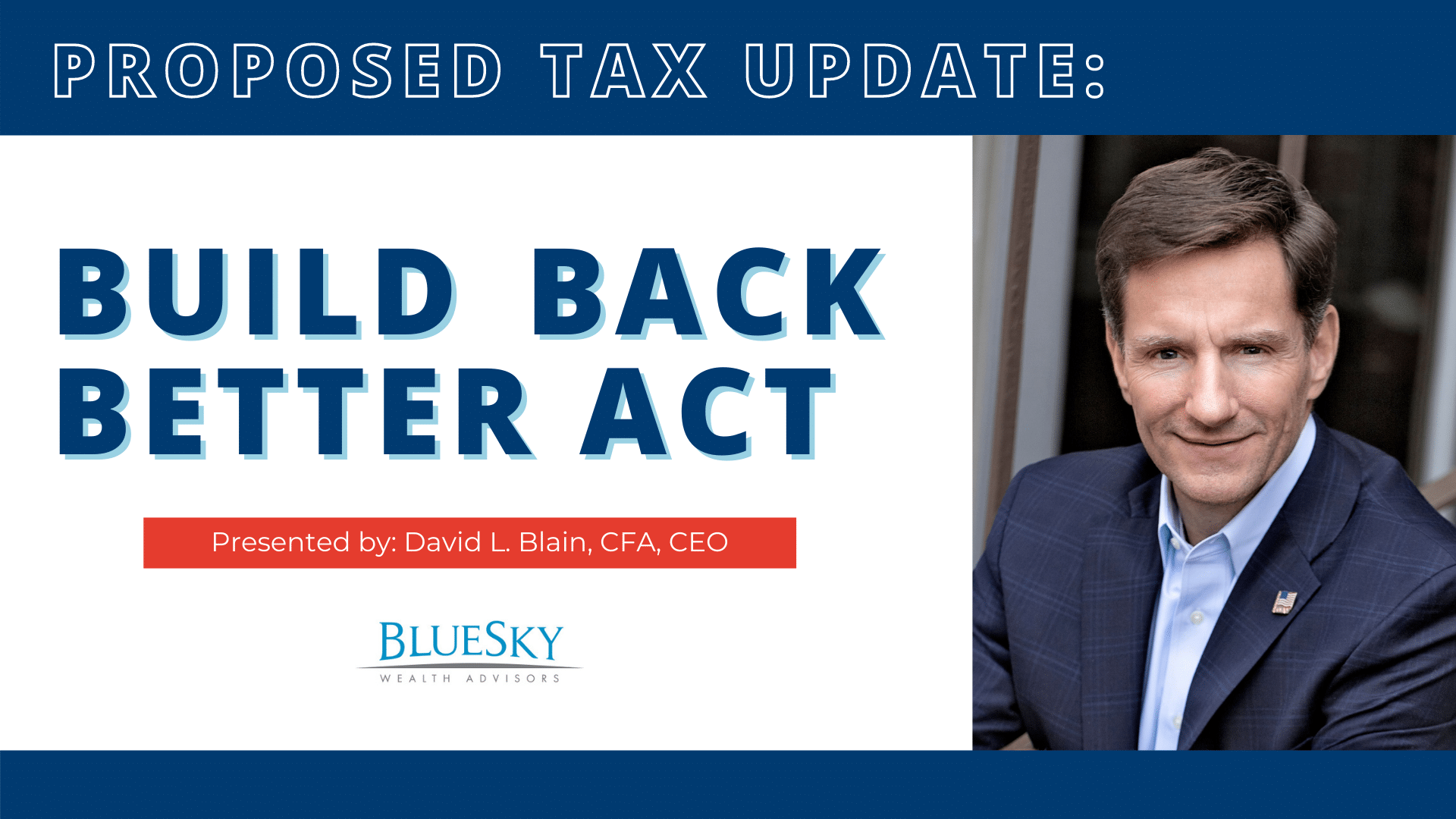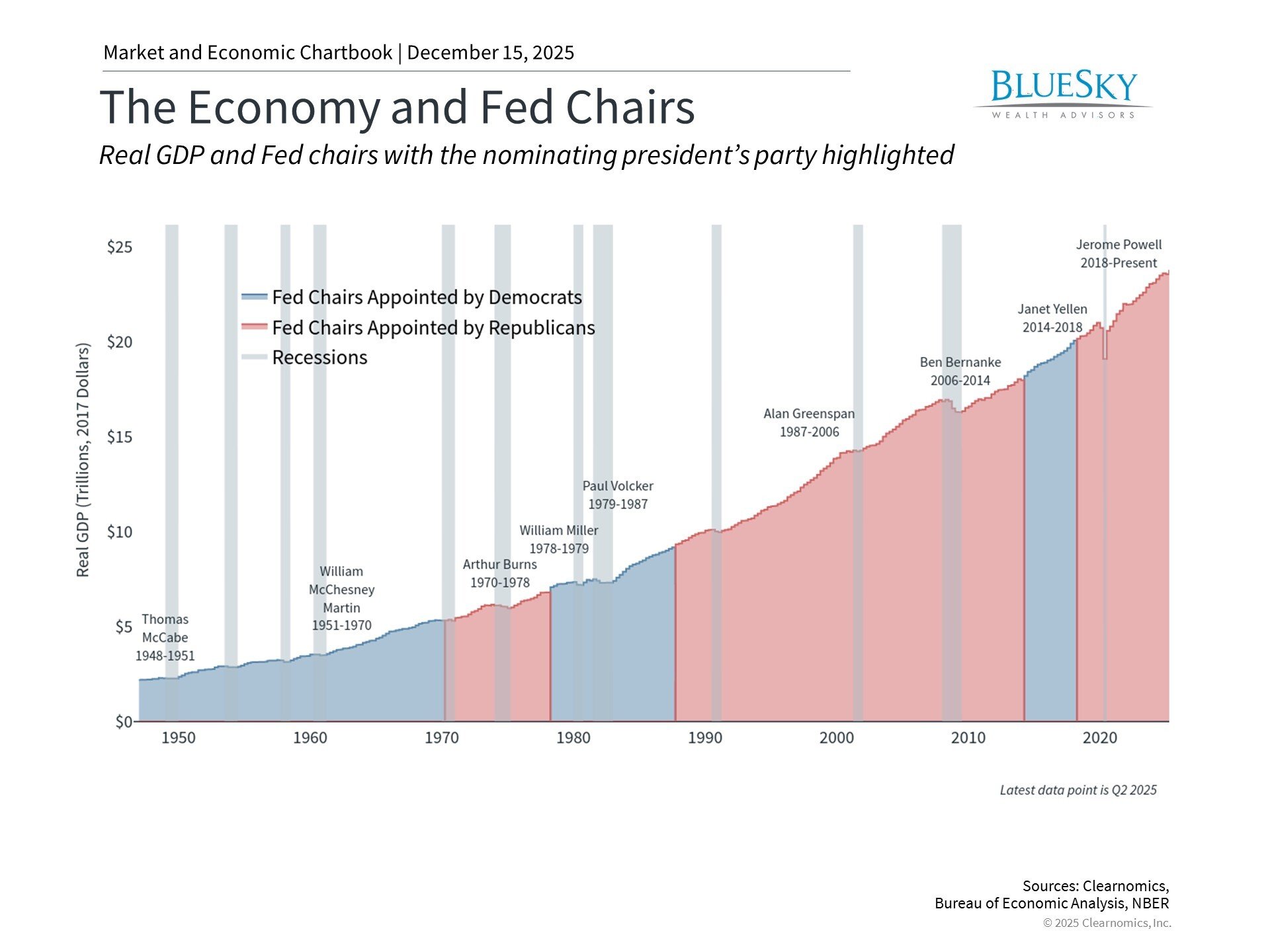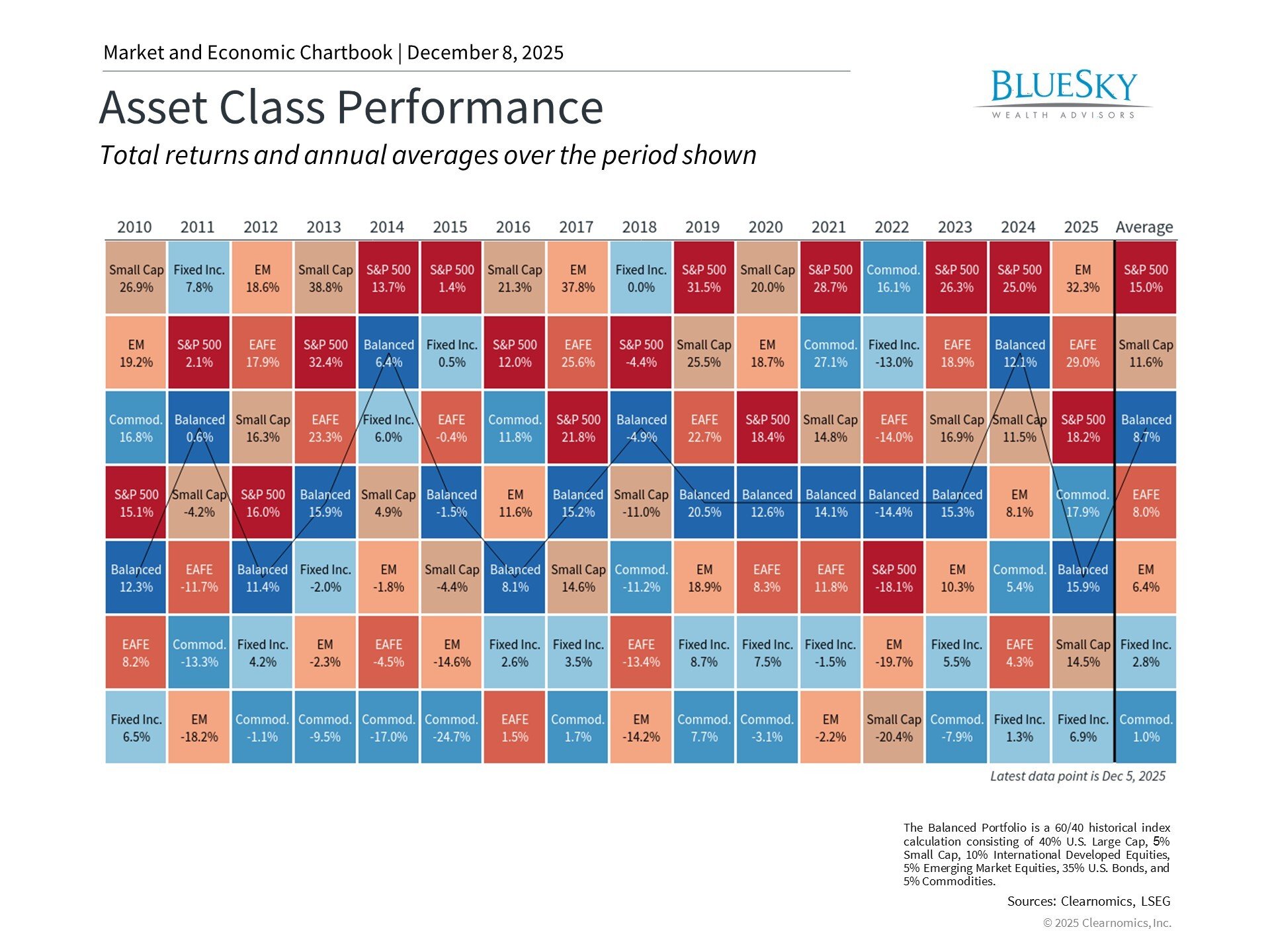
PROPOSED TAX CHANGES AHEAD: BREAKING DOWN THE BUILD BACK BETTER ACT WITH DAVID L. BLAIN, CFA
PROPOSED TAX CHANGES AHEAD: BREAKING DOWN THE BUILD BACK BETTER ACT WITH DAVID L. BLAIN, CFA

David L. Blain, CFA, is the Founder and CEO of BlueSky Wealth Advisors, and author of “Invest in Your Life, Not Just Your Portfolio.”
On November 19, 2021, Congress passed the Build Back Better Act proposing updates impacting the current tax code. If passed by the Senate, these updates will have significant tax implications on high-earning individuals and retirement planning strategies such as the back-door ROTH. In his recent video, BlueSky CEO, David L. Blain, CFA, brings clarity to the proposed updates and what the Build Back Better Bill may mean in the years ahead.
Highlights:
0:00 – 2:26 | Introductions & Summary of Proposed Updates
2:27 – 4:12 | Extension of Child Tax-Credit; New Phase-In Range and Updated Age Range; Permanence of Refundability
4:13 – 4:22 | Earned Income Tax Credit – Expansion
4:23 – 6:33 | State & Local Income Tax (SALT) Deduction Cap Raised to $80k; Work-Around Available for Most States
6:34 – 8:07 | Expansion of Premium Tax Credit for Health Care & Expansion of Eligibility
8:08 – 12:59 | Corporate Provisions: Surcharge on Corporate Stock Buybacks; Limitation on Interest Expense Deduction, Section 1202 Exclusion Disallowed, Net Investment Income Tax
13:00 – 14:18 | Surcharge on Income for High Earning Individuals
14:19 – 15:27 | Green Energy Initiatives: Energy-Efficient Tax Credits
15:28 – 19:07 | Retirement Plan Updates: Contribution Limits for Retirement Accounts; Expiration of Back-Door ROTH Conversions
19:08 – 19:46 | Closing Statements
Transcript:
Hello everyone. David Blain here, BlueSky Wealth Advisors, fresh off the Thanksgiving vacation. I hope everyone had a wonderful Thanksgiving with your family and friends or whatever your family tradition is. I know I had a great time. Back here Monday morning, ready to get busy again. A lot of stuff going on.
Today I thought I would give you a quick update on the Build Back Better Bill that Congress passed back on November the 19th. So like I’ve been doing recently, I’m going to give you the bottom line upfront here for those of you who don’t want to watch the whole video. Congress did pass this bill, it still has to go to the Senate for approval, so some of this stuff may change.
But quickly, the higher income tax rates for individuals were not in the bill. So there’s going to be no increase in the individual income tax rates. There is going to be a surtax, people that make over 10 million or 20 million a year. Capital gains changes are out. The state tax changes are out. The state and local income tax deduction, the SALT tax is in. Higher limits. The backdoor Roth IRA is in, limiting the ability to do backdoor Roth. There is a new corporate minimum tax.
There is a new cap on retirement account balances. There are restrictions on Roth IRA conversions and the Billionaire’s Tax on Unrealized Gains is out.
So for those of you that just want to watch the first minute or two, I’m giving you the highlights of the bill. Now we’ll delve into some of the details of what actually is going on. So the first thing we’ll address, once again, is this is not final. The bill goes to the Senate where they can change it and send it back to the House for voting again.
I just want to give you an update because there’s been a lot of people changing their planning throughout, frankly, in the past, ever since COVID all these bills, people radically changing their planning and we don’t recommend doing that. Let’s wait and see what is final. There are some things in this bill that will probably make it through. Some more controversial, such as the SALT limitation, may or may not, but we’ll go through them one at a time.
The first item, the one-year extension of the Child Tax Credit has been extended, and also the refundability provisions have been made permanent. So what does that mean? It means that now the Child Tax Credit is up to $3,000 per child up to $400,000 of adjusted gross income. There’s an additional amount. There is a new phase-in range. There are also new ages if the child is under six. There’s a whole host of changes that touch Child Tax Credit. I won’t go into all the details here today. Suffice to say, if you have children under the age of 18, there’s more money involved at higher income levels.
Also, as some of you may have noticed, the prepayment of this Child Tax Credit, the money that’s deposited in your checking account every month will continue for taxpayers with an adjusted gross income of 150,000 or less.
The other thing it does is it makes permanent the refundability. What is refundability? Refundability means the first tax credits are applied against any income tax that you owe. If you don’t owe any income tax, a refundable credit means that the government sends you money, and so the Child Tax Credit, the Additional Child Tax Credit, the enhanced Child Tax Credit, there’s all sorts of different things. Frankly, we need to put it in the software to figure it out, but there are several enhancements to the Child Tax Credit that should mean more credit for most people that have children.
The earned income tax credit, I won’t spend much time here on that. Doesn’t really apply to most of our clients or frankly, any of them, but that has been expanded. Let’s spend a moment on the SALT deduction cap. So as you may recall, the state and local income tax, also known as SALT, used to be deductible against federal income tax. Well, in the 2017 Tax Cut and Jobs Act bill, this limit was reduced to $10,000. So a maximum of $10,000 could be applied against federal income on your Schedule A. So this really only applied to people itemizing and for people that had more than $10,000 of state and local income tax. These ones include both income tax as well as property tax, which hit a lot of middle-class taxpayers.
The bill that was just passed by the House would raise that limit to $80,000. It would cap the deductibility at $80,000. So this is one of the provisions in the bill that is somewhat controversial because it mostly goes to wealthy taxpayers, according to the definition of Congress. So we need to wait and see how that goes through.
By the way, there is, if you’re not aware of this, if we’re your tax preparer or if you have another tax preparer, there is a workaround to this SALT tax for most states now, for passive income through S corporations or partnerships taxed at the individual level. Most states are passing bills that allow the company to pay the tax at the entity level and take a full deduction for it for any state income tax attributable to that business income.
So I know that’s a mouthful. The point is there is a workaround. If you own an S Corp, a partnership, or an LLC with pass-through taxation, in most states, there is a workaround. In North Carolina, they just passed that bill. It starts in 2022. Most other states have some sort of workaround available.
So back to the Build Back Better Bill. It also expands the premium tax credit for those of you purchasing your own healthcare. It expands the number of people that are eligible for the credit, including people that make over $400,000 a year. If their healthcare premium is deemed unaffordable, meaning it’s more than 8.5% of their income, then they’re eligible for premium tax credits. It also adds more money to the premium tax credits themselves. If you don’t buy your own insurance, you may not know what’s going on out there, but I can tell you, it is incredibly, incredibly expensive.
I can tell you, for example, for my family, two adults and we have five children, for a health plan with a $7,000 individual deductible, $14,000 family deductible, it’s about $3,000 a month, is what the healthcare premium is. Now, if you want a gold or platinum plan or something with a lower deductible, the numbers really get up there into the $4,000 a month range. So the expansion of the premium tax credit is really an acknowledgment that the health system and the premiums are just completely out of control and is really almost unaffordable for just about anyone.
Anyway, there’s a couple of corporate provisions in the bill. I won’t go over all these. 15% minimum tax on profit of large corporations, any corporation who reports over $1 billion in profit. So this is going to hit a lot of the most profitable companies. As if the regular corporate tax wasn’t enough, they’re now going to have this separate 15% minimum tax on profits.
There’s also going to be a 1% surcharge on corporate stock buybacks. It won’t affect the markets too much, but as investors, we need to be aware of that. Limitation on interest expense deductions, a bunch of foreign income changes. Once again, if you’re interested in that, let me know or look it up, we’re not going to spend a lot of time on the corporate foreign income tax change. It doesn’t apply to a lot of our clients. Country by country, minimum tax. Once again, foreign corporations.
Here’s a big one though, for a small but important segment of our clients. The Section 1202 exclusion, which is available for C corporations to sell the stock in their company or liquidate their company under Section 1202, the code was tax-free. This was designed for private equity firms to be able to roll.
So a 1045 exchange is a tax-free exchange, 1202 is a liquidation or a complete sale of a C corporation, tax-free. It’s very, very important. Once again, maybe not a lot of people, but for those that do use it, this is a very important exclusion that is set to disallow that tax-free income.
A couple of other changes, Wash-Sale Rules will now apply to commodities, foreign currencies, and crypto assets, don’t know why, but it never applied to those assets before, like on a stock sale. So a wash sale’s when you sell a company for a loss and repurchase the exact same company within 30 days of that loss, the loss is disallowed. And so it’s to prevent you from selling something at a loss and then buying the exact same thing.
Now, what you can do is you can sell it at a loss and buy something similar. You can’t just buy the exact same stock. So if you bought Tesla or something and it went down and you sold it at a loss, you couldn’t buy that stock within 30 days or that loss is disallowed. So anyway, the Wash-Sale Rule, now they’re applying it to crypto and some other categories.
This next change is a big one too, for our business owners. As you may or may not know, there’s something called the net investment income tax. Which by the way, is just about double the Medicare tax. It’s designed to bolster the Medicare tax. It was put in place to raise funds for Medicare. So it’s 3.8% on net investment income. And it was designed for investment income, capital gains, stock sales, dividend income, those types of things. If your income exceeded a certain amount, you were subject to another 3.8% tax.
It effectively raised the highest capital gains tax rate from 20% to 23.8%. Well, this bill, for taxpayers that make over $400,000, this 3.8% tax will now apply to pass-through business income. And what does that mean? It meant as the owner of a pass-through entity, an S corporation or LLC, or something like that, the income that passed through to the shareholder was free of this net investment income tax. Well, this change applies that 3.8% tax to that net business income of an active business owner. And so it really is going to change some of the calculus when deciding whether it’s a pay wage to that business owner or let the income flow free of social security and Medicare tax. That was a big thing. S corp is how much you pay yourself in salary versus how much passes through in distributions. Well, this will subject those distributions to an extra 3.8% tax. So it should lead to some interesting tax planning as we go forward.
I mentioned in the bottom line upfront section, the surcharge won’t apply to many of you, but for a few of you, it does. 5% surtax if your AGI exceeds 10 million, 5 million tax for filing separately. Here’s a big one, 200,000 for an estate or trust. So for those of you with assets and a trust, attempting to shield it, that’s retaining that income, this third tax would apply if your income exceeds $200,000 dollars, that’s a very, very low number. And by the way, this is applied on AGI. So you can’t take write-offs against it. You can’t give it to charity. You can’t do anything. It’s applied on AGI.
On AGI exceeding $25 million, there’ll be another 3% surtax. And for that of note, income in excess of 500,000 for an estate of trust will be subject to this additional 3%. So on income of over 25 million or 500,000 for an estate or trust, you’re going to be hit with an 8% surcharge on income.
There’s a host of green energy initiatives in the tax bill. I won’t go through all of them, but it brings back some energy-efficient tax credits for non-business property. It also brings in some electric vehicle credits, $8,500 for new qualified plugin electric drive motor vehicles. There is a limit on that, 80,000 for vans, SUVs, and trucks. $55,000 for other vehicles. So if you’re planning to buy some luxury sports car hybrid that costs $150,000 or something, sorry, it will not apply.
The credit is also phased out for taxpayers above 500,000 married filing jointly, or 250,000 for single taxpayers. So some things in there for electric vehicles, watch the phase-out range, as well as the cars that are going to qualify. I bet you are going to see a lot of electric vehicles come in right below $55,000 in cost so that people can qualify for that.
All right. So here’s a big one, retirement plan updates. There’s a lot of changes coming here. There are some phase-in phase-out years. So obviously get with your advisor on this, but I’m just going to kind of give you the highlights, the first, contributions to a Roth or traditional IRA or defined contribution account. So basically any type of retirement account, if the balance exceeds $10 million, you’re not going to be able to put any more money in it. If your household income is above 400,000 for single married, filing separately, or $450,000, if you’re married, filing jointly, that is effective in 2028. So you got a few more years for that, but effectively, if your retirement account goes above $10 million, you will not be able to make more contributions if your income is above a certain threshold. So that doesn’t take place until 2028. Also that, after 2028, if your account does exceed $10 million, you’re going to be required to take minimum distributions, no matter what your age. So right now you have till age 72 to take money out of those retirement accounts. This bill starts in 2028, if your income is above a certain threshold and your IRA is above a certain threshold, you’re going to be required to take money out.
A couple of more immediate provisions. Starting this year, 2021, the bill will prohibit all after-tax contributions to qualified plans or IRAs from being converted to Roth. So effectively, this is the last year to do the backdoor Roth contributions or the mega backdoor Roth. Not sure if this will survive the Senate yet or not, but if you’re planning to do that, you’re going to want to go ahead and do that, take care of that this year.
Assuming this passes, once again, I’ve said this several times, none of this is law. What we’re trying to do is prepare you so you know what’s going on, have the conversation with your advisors about some of these things, if they apply. We don’t want to make rash irrevocable decisions based on possible things. But if it makes sense, in certain cases, we’re going to go ahead and want to start changing this stuff.
The bill also eliminates Roth conversions for IRAs or 401ks, employer-sponsored plans. If your taxable income is over that 400,000 single, 450 joint income, and this applies in 2031. So we’ve got about 10 years. By the way, some of these dates on this stuff are the budget gimmicks. The way that they do this to get the congressional budget office to score these favorably, is they put phase-ins, phase-outs, all these types of things.
So it makes it very difficult to plan, first of all. And also frankly, it makes it almost impossible to figure out what the impact is. I mean, who knows what the tax impact of this will be in 2031. Anyway, the point is, so Roth conversion goes away for people that make above a certain amount, in 2031. Effective this year, the backdoor Roth, the mega backdoor Roth is scheduled to go away.
All right, so once again, just some big changes coming down the pike and the retirement plan arena and some of the tax, SALT taxes, pass-through taxes, different things, but none of this is law yet, stay tuned. I’ll put out an update as soon as something passes the Senate and assuming that President Biden signs it, we’ll put out another update, but I just want to give you this heads up about what’s going on in the world so you can begin to make plans. Okay. Well, thanks a lot. And I hope you enjoyed this video. We’ll be back in touch again soon.
Want to hear more from David L. Blain, CFA? Please see his featured articles below:
In Memory: Honoring the 20th Anniversary of 9/11 and the Resiliency of the American Economy





